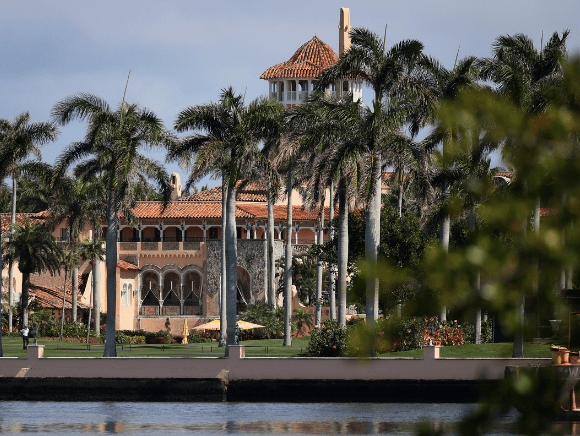
The optics were not good. One imagines that the federal authorities knew raiding the residence of a former president was a big deal. So, they waited until Donald J. Trump was not on the premises, claimed to have tamped down the Kevlar not to appear too menacing, and descended upon the national historic landmark that serves as his home. But any which way this event is sliced and diced; it was going to splatter across the political landscape of America like a locust hitting a windshield at 70 miles an hour.
The Mar-a-Lago raid is a political tsunami of epic proportions; for once, that is not overstating the case. To some on the left, this was not even a raid but rather the “execution of a search warrant.” To those on the right, it was a chilling moment that reeked of abuse of power replete with political overtones. Worse still, those who sit on neither side of the political divide – those in the middle who largely decide our elections – are left with very little information or motivation for this (yes, we can say it) unprecedented action.
 It must be assumed that those at the top of the political food chain felt all this hullabaloo was worth it – that there was something they desperately needed and could get no other way. So, in the still, dark morning of Monday, August 8, with flashing red and blue lights atop their government-issued Uber black-looking vehicles, they swarmed Mar-a-Lago and set off a political firestorm.
It must be assumed that those at the top of the political food chain felt all this hullabaloo was worth it – that there was something they desperately needed and could get no other way. So, in the still, dark morning of Monday, August 8, with flashing red and blue lights atop their government-issued Uber black-looking vehicles, they swarmed Mar-a-Lago and set off a political firestorm.
If Only Houses Could Talk
The nation has Grape-Nuts® and cereal heiress Marjorie Merriweather Post to thank for Mar-a-Lago, which means “sea to lake” in Spanish. Mr. Trump purchased it in 1985 for an amount said to be somewhere between $7 million and $10 million. Much of the 62,500 square-foot mansion has been converted into an exclusive Palm Beach club. However, the Trump family still maintains private quarters on the property. It was here that the FBI conducted its raid and, according to a receipt, left with the following:
- 27 boxes, of which 11 are said to contain classified documents
- Four boxes labeled “Top Secret”
- Three boxes labeled “Secret”
- Three boxes labeled “Confidential”
The rest of the confiscated material is said to be top secret/sensitive compartmented information and marked as “Various classified/TS/SCI documents,” which multiple media outlets say, “could cause exceptionally grave damage to US national security.” Also listed as removed were two binders of photos, a handwritten note, Trump’s grant of clemency to Roger Stone and something labeled “info Re: President of France.”
With little more to go on, the national media has descended upon these classified documents as motivation for the police action. As speculation progressed during the weeklong information vacuum, there was even talk of secret “nuclear documents” held at Mar-a-Lago.
Brilliant Head Fake?
One wonders if these papers were really at the epicenter of this storm or merely served as an excellent evasion tactic reminiscent of the classic movie plot where the art thieves set C-4 to go off in the Whistler gallery so they can head to the Old Masters room and make off with a Rembrandt.

(Photo by Eva Marie Uzcategui/Getty Images)
Oddly missing from most of the cable news chatter was talk of documents relating to Jan. 6, 2021, that may have been in 45’s possession. Those hearings are set to retake center stage this fall, and President Trump’s involvement on that fateful day has always been of primary concern to his political enemies.
In a well-written article for The Federalist, author Margot Cleveland postulated the many motivations for the Mar-a-Lago raid. These included an effort to “Spur Protest to Paint Trump Supporters as Violent Extremists.” Check – that’s already happened in Cincinnati. She also speculated that perhaps the authorities decided to “go fishing,” which could conceivably bring forth “the catch of the day” until God-knows-when. But where Cleveland may have faltered is in advancing the theory that the “Deep-State Cocoon Didn’t Anticipate the Average American’s Reaction.” The alternative theory – some might say even more likely — is the powers in charge knew such an action might revolt the average American – but on balance, they felt it was worth it.
Risk vs. Reward
Many summers ago, in 64 BC to be exact, Marcus Tullius Cicero participated in a bitterly contested election for the office of consul in Rome. Quintus – his younger brother – wrote a little handbook for him. Though the author’s provenance has been questioned for millennia, his advice remains one of the political classics: Destroy your opponents’ reputation.
Even the casual observer can see the worry lines on President Trump’s face. He should be worried now that federal authorities have helped themselves to more than the breakfast cereal at Mar-a-Lago. However, since it’s Sunday, perhaps words from the prophet Isaiah could provide some respite for a former president under siege: “No weapon forged against you will prevail, and you will refute every tongue that accuses you.”
Check out Whatfinger.com, the #1 Alternative to the Drudge


